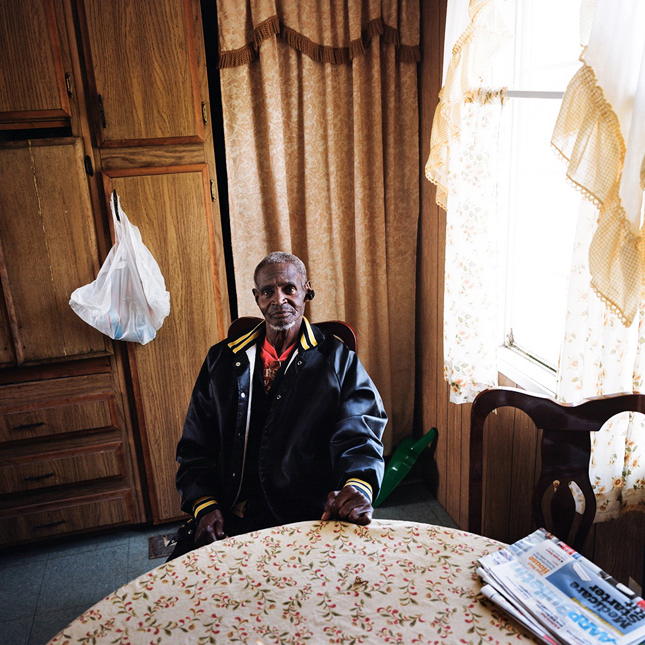17 Lee Harris
-

Lee Harris at home. Fairmead, Madera County.
-
"A lot of the kids went west, but they always come back, one way or the other, to this place. They're always coming back."
Lee Harris is a gentle man, and quiet—his voice comes out like a soft breath. I talked with him in his trailer home in Fairmead, a town to which many families like his migrated from the South during the Depression and post-war periods. The town they found in Fairmead was past its heyday, an empty nest that the newcomers filled with life. By the 1950s there were two gas stations, restaurants, and three little joints—“country clubs,” they called them—where you could dance to rhythm and blues all night long.
From there the story took familiar turns: young people left in search of work; businesses died off; the community thinned out; there are plans for Chowchilla to annex the town. Fairmead is actually just a stone’s throw from Highway 99, but those on the freeway wouldn’t know it was there unless they got off, doubled back down the frontage road, and went looking for it. What they’d find is a cluster of weathered homes spread over a few square blocks. No sidewalks, no park; a lot of rough edges.
But they’d also find a lot of people who have stayed in Fairmead, or returned after long absences—Lee among them. As a young man he went to the city, too, but after twenty-five years he came home for good. On weekends he barbecues oysters in his back yard. In summer he relishes the warm nights, sits outside with a pitcher of beer. “I like that country feeling,” he said in his whisper, “that’s why I came back. What keeps me here is the same thing. I can always leave and go to the city. Can’t bring the city here, though. It’s not like that.”
- Prev
- Next
- Next Story
